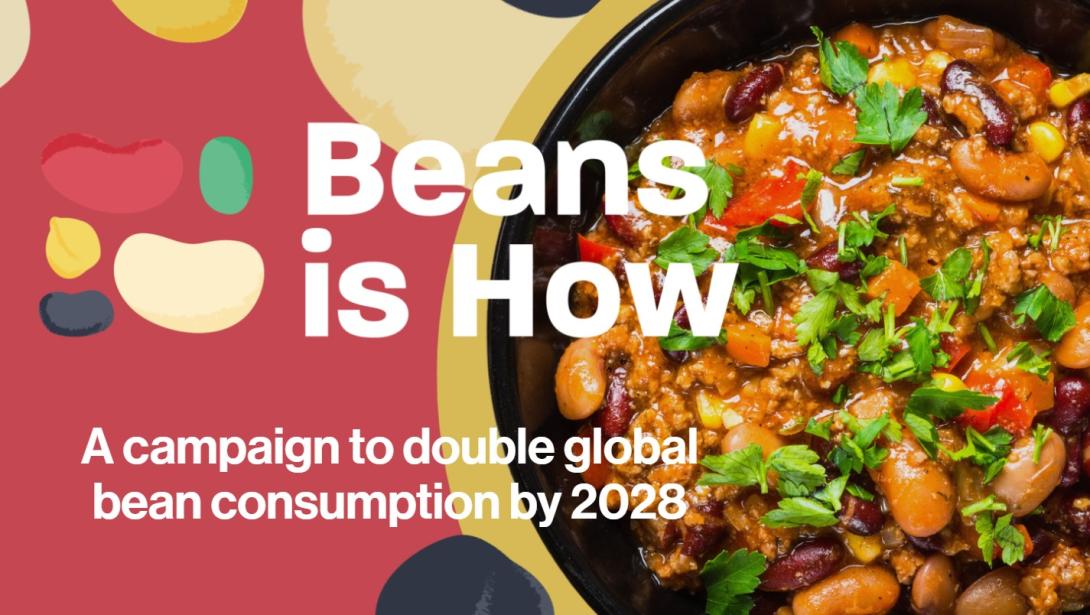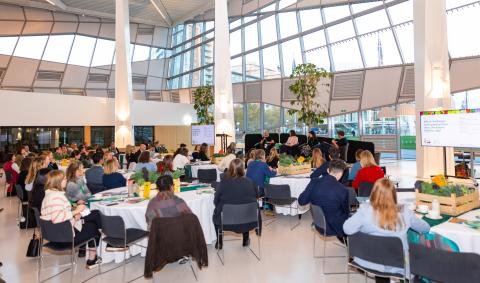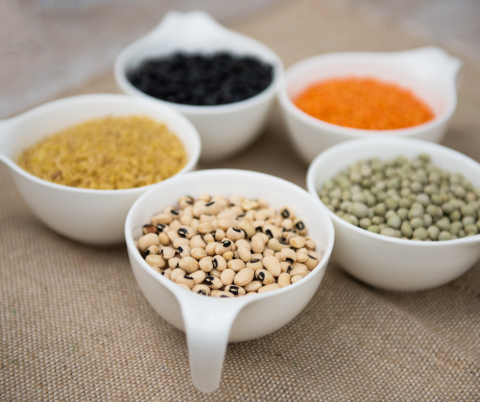14 November 2023
How beans can help fix the future of food

How beans can help fix the future of food by guest blogger Ali Morpeth, Project Lead at Beans is How
In this decisive decade for a sustainable future for people and planet we need positive examples of food systems transformation. Beans are just that!
Beans is How, a global coalition of partners from all over the world, are working together to amplify and make visible the importance of beans as a simple and affordable solution to our cost of living, health and environmental challenges. We have the ambitious goal to double the global consumption of beans by 2028.
We think beans (including peas and lentils) can help fix the future and this is why:
Beans are a simple, affordable solution to our global financial, health and environmental challenges. They offer us amazing nutrition, soil health, and biodiversity wins.
Beans are nutrient dense - rich in protein and fibre (which is lacking in UK diets with a deficit of ~10g per day). They are also low in fat and high in micronutrients.
In the UK eating beans can help deliver the Eatwell recommendation for veg because eating beans counts as one of your 5 a day(1)! Eatwell also recommends eating beans as a source of protein, so they tick all the nutrition boxes(2).
Beans are good for the planet - growing beans can improve soil and water quality. They also convert nitrogen from the atmosphere and fix it in the soil which is a win for climate.
Beans use less water than other crops. In the UK production of beans is scaling up and we have home grown varieties on fields from Cambridge to Scotland.
Beans are affordable, and also delicious - beans have been part of people's diets for millennia and they are already one of the most popular foods in many settings.
There are hundreds of varieties of beans - and UK home grown peas - which can be used in so many dishes - for breakfast, lunch and dinner!
In the UK we buy on average, 30g of canned beans and pulses per person a week(3), which is equivalent to around 15 chickpeas or two tablespoons of lentils.
There is scope to have lots more beans in our meals and doubling consumption will bring health, climate and biodiversity triple benefits.
We launched Beans is How at COP27 and in the first monumental year of this campaign, we have recruited around 90 partners into our global coalition, put beans on the menu on high profile platforms including New York Climate Week and Africa Food Systems Forum and celebrated World Food Day with beans in schools.
We'll soon be celebrating our first anniversary at COP28.
Signatories of Food Foundation's Veg Pledge might be interested to know that in the UK we have established a working group who represent the entire value chain to scale production - consumption of beans.
We would like everyone who supports the Veg Pledge to be part of this campaign - whether that is through your work on including more beans as a portion of veg, a source of protein, a fibre power-house or as an organisation singing up to the Beans is How Coalition to work with us and deliver these important campaign goals.
- You can find us online by clicking here and email us to join the Coalition via ali@sdgadvocacyhub.org
_______________________________________________
(1) NHS. 5 A Day: What Counts? Health Survey England; 202. Available from: https://digital.nhs.uk/data-and-information/publications/statistical/health-survey-for-england
(2) NHS. The Eatwell Guide - Pulses, Health Survey England; 2021.Available from: https://tinyurl.com/4xheccbc
(3) N.Wunsch. Statista. Weekly UK Household Consumption of Canned Beans; 2023. Available from: https://www.statista.com/statistics/721177/weekly-uk-household-consumption-of-canned-beans-united-kingdom-uk/





